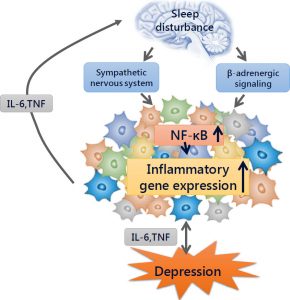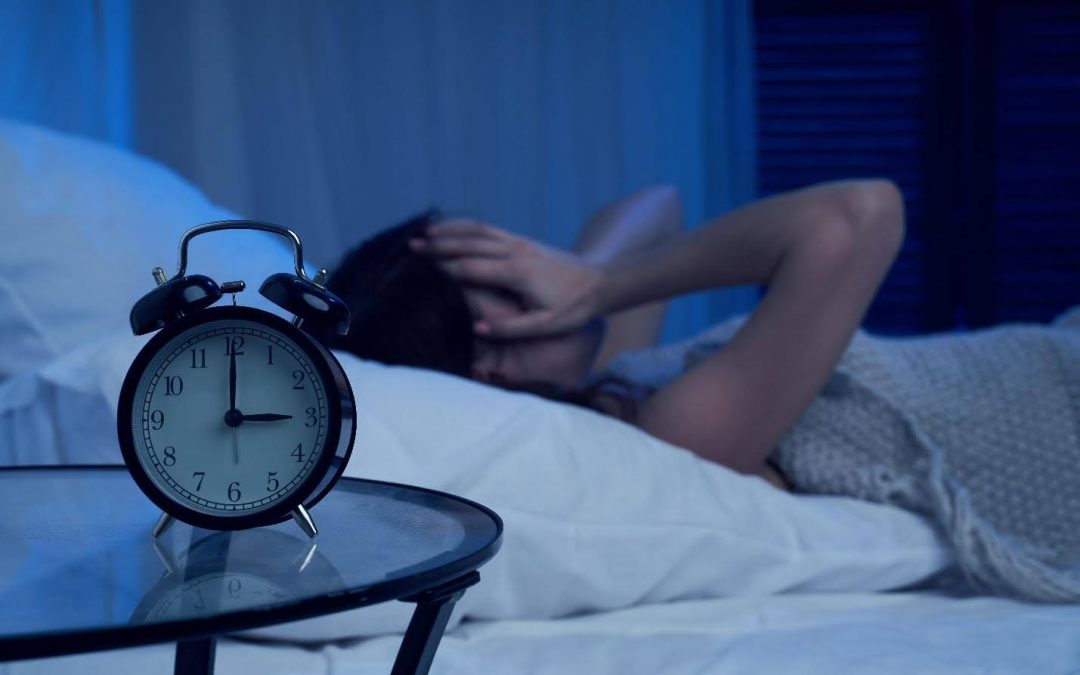Ever find yourself in a situation where, no matter how tired you are, it’s just not enough to get you to sleep? It’s like you are exhausted, but sleep is playing hide and seek with you.
In moments like these, you may wonder what the heck is going on – sleep deprivation is very common in adults and normally driven by anxiety and stress.
The thing is, this “tired but can’t sleep” scenario isn’t just a minor inconvenience. Not getting enough sleep, even for one night, can snowball into anxiety, fatigue, and irritability the next day. Thus, a vicious cycle begins that affects your sleep and puts your overall health at risk.
However, instead of grabbing those “evilly” sleeping pills, read ahead to improve your sleeping experience and reduce sleep deprivation with a few adjustments in your breathing technique.
Why Am I Tired But Can’t Sleep?
There can be several reasons why you feel tired all day long, but you can’t just go to sleep when it’s time. Here are a few common ones,
Anxiety & Depression
Anxiety can do a lot to damage your sleep routine leading to sleep deprivation.
When you have an anxious mind, it becomes quite difficult for you to relax for even a few minutes. Additionally, it keeps the body in a continuous state of arousal by releasing stress hormones such as cortisol.
Anxiety is also well-known to disrupt your circadian rhythm – a biological clock that helps your brain recognize the difference between day and night (2). This effect ultimately leads to further sleeping problems.
In short, we can just say that racing thoughts, worry, and anticipation all contribute to a state where you can’t just go to sleep peacefully.
According to a scientific research, around 90% of people with depression experience sleep-related issues. Therefore, dealing with depression can also help to get you to sleep faster than usual.

Image src. Wiley Online Library
Mouth Breathing
Out of the many things, the factor that gets most neglected is mouth breathing. You wouldn’t be surprised if I told you that most of us don’t even consider it a thing. You are probably one of them, too.
So, let me tell you something.
Your nose has built-in mechanisms that maintain the moisture and temperature of the incoming air. The typical anatomy of the nose also prevents the entry of debris from the outside air into the lungs. Ultimately, your lungs get filtered air with enough moisture to promote the absorption of oxygen into the blood.
When you do mouth breathing, your lungs only get polluted dry air that damages everything. As a result, your sleep gets interrupted, and you often wake up with throat pain in the morning, which affects your daytime work, too.
If you are also facing similar issues, try the Buteyko method, which aims to facilitate nasal breathing and, ultimately, more oxygen in blood and tissues. As a bonus, you also get a night of quality sleep after a tiring day.
Other Common Factors
Additionally, a few of the other common factors, such as caffeine, alcohol, certain medications, and issues like snoring and apnea, also affect the quality of your sleep leading to sleep deprivation.
What to do When You Are Tired But Can’t Sleep?
One of the most well-known strategies to deal with sleeping problems is to make a sleep and wake-schedule. There is no harm in staying organized about everything as it helps your body to perform better. When you work on a schedule, your brain already knows at what time you will go to sleep. So, it would already start producing sleep hormones when it’s time, improving your sleeping experience.
Another thing that we advise is that you only go to your bed when you want to sleep. Spending unnecessary time in bed while using screens can make it hard for you to go to sleep afterward. Just think, you only go to a restaurant for lunch when you’re hungry. So, why go to bed when you aren’t feeling sleepy yet?
Here are a few other things you can do to reduce sleep deprivation.
- Make your sleeping place comfortable.
- Avoid too much lightening in the room and make your space dark
- Don’t use your mobile or screen for at least one hour before sleeping
- Use earplugs if your surroundings are too noisy, which can affect your sleep.
Finally, as we have discussed before, sleep problems can be caused by other conditions. For example, if you find it hard to go to sleep because of anxiety, deal with your anxiety first. Try relaxation techniques and breathing exercises to help you relax. Once anxiety is settled, going to sleep will not be that difficult. Similarly, dealing with depression, snoring, sleep apnea, and mouth-breathing issues can also help you get a better night experience.
How Does Buteyko Breathing Method Help with Sleep Deprivation?
The Buteyko method is a breathing technique that focuses on slow breathing through the nose to reduce over-breathing and hyper-ventilation.
This technique teaches you to breathe gently through your nose – which is the right way.
Many sleep problems, such as sleep apnea or snoring, are related to breathing difficulties during sleep. By promoting nasal breathing and reducing mouth breathing, the Buteyko method may help relieve these issues, leading to fewer interruptions during sleep (5, 6).
Additionally, proper breathing techniques can optimize oxygen levels in the body. Better oxygenation helps your body enter deeper, more restorative sleep stages, leading to better sleep quality (7).
Furthermore, the Buteyko method emphasizes relaxation and stress reduction techniques, which can help address anxiety and promote a more peaceful transition into sleep (6).
Whether it’s simply snoring or mental health conditions such as anxiety, the answer to all your sleep problems is nothing but the Buteyko method.
In A Nutshell…
One of the most frustrating experiences is when you feel tired but can’t sleep.
In fact, not getting enough sleep also affects your daytime performance, and you ultimately enter into a vicious cycle that worsens your overall health.
There can be several reasons why you can’t just go to sleep after a tiring day. A few of the common ones are anxiety, depression, snoring, and mouth breathing.
You can try different techniques to deal with these issues. However, the most effective technique is the Buteyko method, which single-handedly solve many sleep deprivation issues.
Try it for yourself, and let the results speak for themselves

